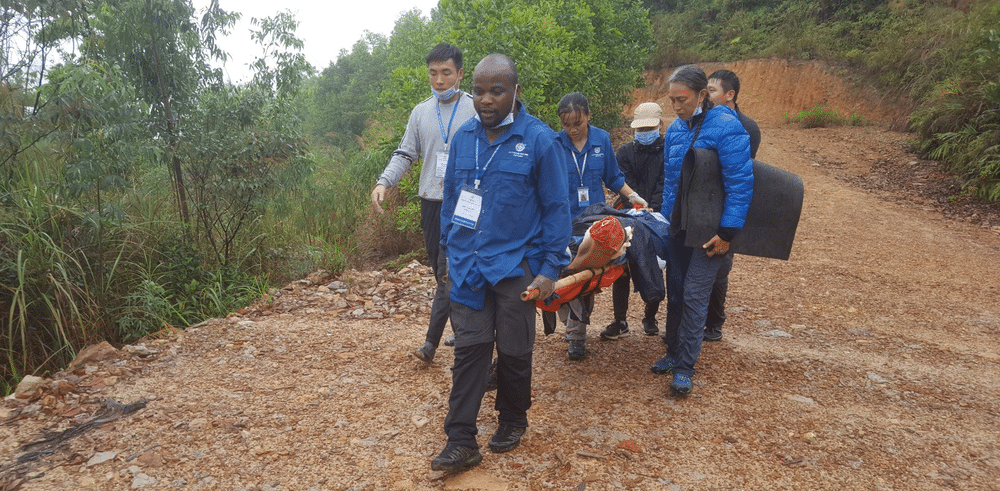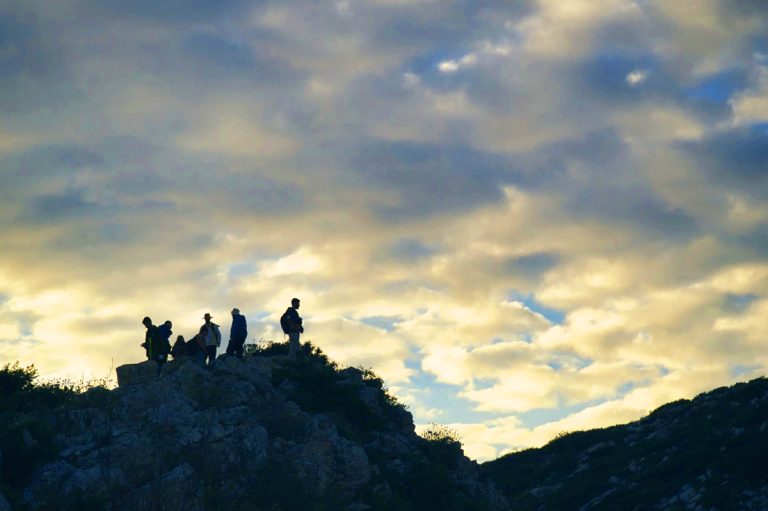East Africa Wilderness Medicine Trainings for Professionals Working in Remote, Austere & Outdoor Settings
Viristar is offering a Wilderness First Responder training in Nairobi, Kenya, on May 2-9, 2022, in Nairobi, Kenya.
The class is 70 hours over eight days. Tuition is USD $700.
Viristar is also offering a Wilderness First Responder Recertification course at the same time. This WFR recert course will recertify a Wilderness First Responder or Wilderness Advanced First Aid certification. The recert course occurs over four days during the WFR course; tuition is USD $350.
A Collaborative Project
The trainings are being offered in collaboration with Shavicol Safaris, a registered tours and travels agency based in Narok town, Kenya. Shavicol provides treks, safaris and adventures focused on exploring African wildlife and Kenya’s magnificent game reserves and mountains. Shavicol has a special focus on environmental conservation.
Bringing wilderness rescue and emergency medicine to outdoor professionals is a natural fit for Collins Ochumbe, co-founder of Shavicol Safaris.
In addition to his work organizing and leading safaris, Collins is a paramedic at Narok County Referral Hospital. He holds an Advance Diploma in Emergency Medical Techniques from the Kenya Council of Emergency Medical Technicians, and leads train-the-trainer classes in Occupational First Aid with the Kenyan Red Cross Society. He has experience dealing with snake bites, emergency childbirth, animal attacks, wound management, disease management, and more.
Viristar is also offering the course in collaboration with George Amolo, the co-founder of the Paramedic Association of Kenya. George is completing his four-year BSc in paramedicine science at the Masinde Muliro University of Science & Technology in Kakamega County, Kenya, and is leading efforts to build a national registry for paramedics in Kenya. George worked in EMS as an EMT with Médecins Sans Frontières and St. John Ambulance Kenya, and, like Collins, he has a keen interest in helping bring wilderness medicine training to Kenya.
The Wilderness First Responder curriculum
The eight-day WFR course covers a broad range of medical problems commonly encountered in remote and austere environments—and more importantly, how to prevent them, and how to creatively respond to them in case they occur.
Wilderness medicine is characterized by delayed or prolonged transport, extreme environments, and limited or improvised equipment. So being able to adapt, think creatively, and use good judgment are important skills in wilderness rescue and emergency medicine.
This is culturally somewhat different from the typical focus of urban or “street” pre-hospital EMS, which has an emphasis on closely conforming to medical protocols, and radioing in to a base hospital for permission to deviate from those standards.
The course starts with a thorough introduction into how to assess patients. This springs from the idea that you have to get your assessment correct, so that your treatment can be appropriate and effective.
Basic Life Support skills—such as CPR, AED use, patient rolls and drags, and use of medical oxygen—are next.
The course, which takes a body systems approach to teaching medicine, then covers the three critical systems—circulatory, nervous, and respiratory. Course participants learn the anatomy, physiology, and pathophysiology of those body systems. Then then study assessment and treatment of medical problems in those systems.
Managing spine injuries—including splinting, litter carries, and spine-stable extrication—comes next. Students engage in a number of practical exercises to transfer their cognitive knowledge into practiced psychomotor skills.
The musculoskeletal system is covered, including practical sessions on extremities splinting and dislocation management.
Sections on allergies and anaphylaxis, asthma, wounds and burns, thermoregulation, and cold injuries follow.
Commonly encountered wilderness toxins—such as, in this case, venomous snakes like the black mamba, cobra and boomslang found in Kenya—are addressed, along with arthropod disease vectors, such as malaria-transmitting mosquitoes. (Malaria causes over 10,000 deaths a year in Kenya.)
Problems with blood sugar, drowning, and lightning are also covered, along with medical-legal concerns and common backcountry/EENT-type medical issues. The WFR curriculum also makes space for topics such as altitude illness and avalanche, for courses in parts of the world where participants may encounter those hazards.
Participants from Reserves, Conservancies, and Forest & Wildlife Services
Course participants for WFRs in East Africa typically include safari and trek leaders, adventure tourism operators, and those involved in managing Kenya’s remarkable wildlife populations and spectacular natural landscapes.
Kenya has a network of some 167 conservancies covering more than 15.7 million acres. The WFR course is relevant for rangers and other outdoor professionals from conservancies such as the 62,000-acre Lewa Wildlife Conservancy, and the 15 conservancies that comprise the Maasai Mara Wildlife Conservancies Association, which protect over 347,000 acres of wildlife habitat.
The Kenya Forest Service, which owns, manages and protects gazetted (reserved) state forests across the country, may participate. And the Kenya Wildlife Service, which manages most of the National Parks and Reserves in Kenya, may also send participants to learn how to prevent and treat medical emergencies when definitive medical care is hours away.
Viristar in Africa and Around the World
Viristar has provided medical training to participants from Nigeria, South Africa, Tunisia, Kenya, and elsewhere in Africa, most recently with a Continuing Medical Education session for Paramedics in Africa.
The staff of Viristar, a licensed training company of Wilderness Medical Associates, have offered WFR and other wilderness medicine training classes in 17 countries since 1997.
Viristar has also provided its 40-hour online training course, Risk Management for Outdoor Programs, to participants from Angola and South Africa, as well as individuals from over 40 countries on six continents.
In addition to medical training and outdoor safety courses, Viristar also offers risk management reviews (safety audits), expert witness services, incident reviews, and other consulting services to outdoor, experiential, travel, and adventure programs globally.




